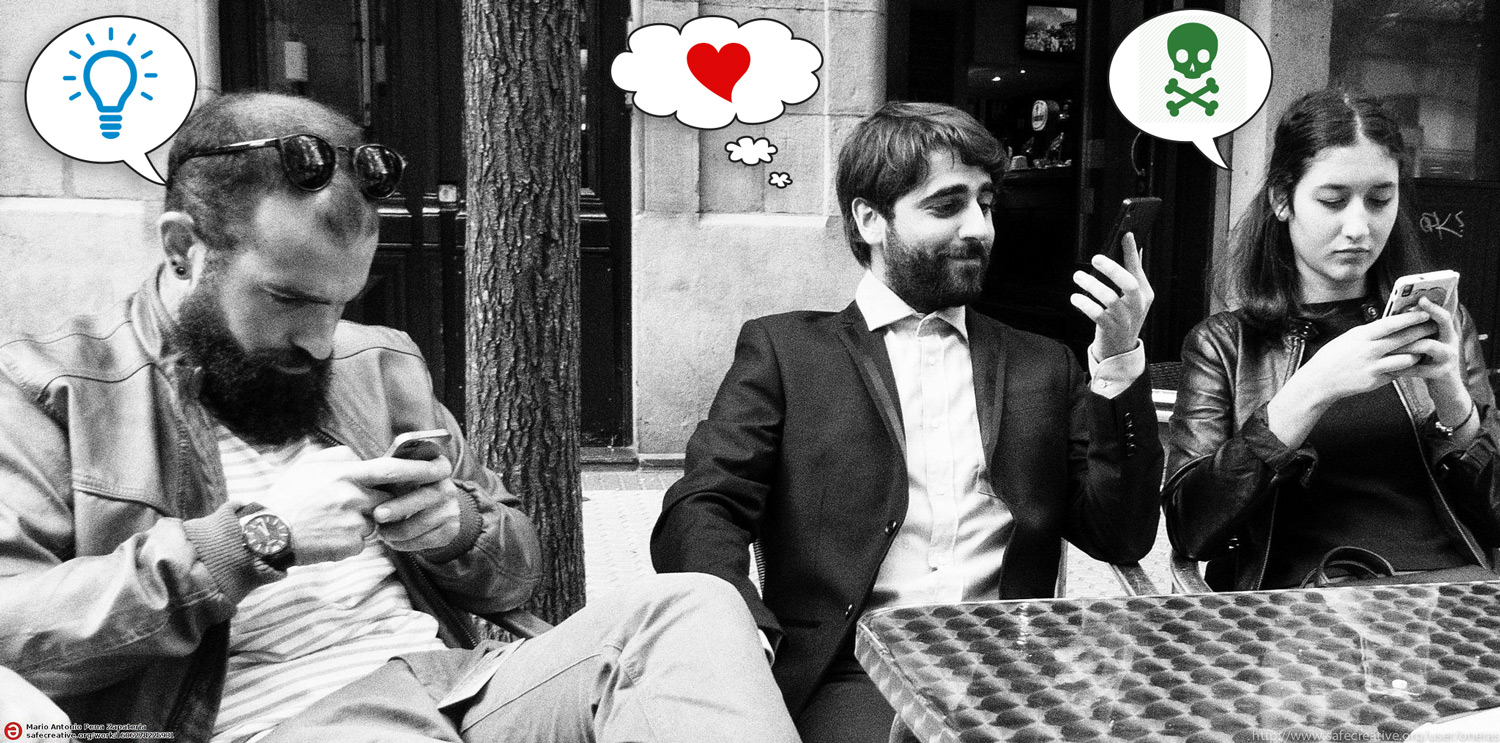Digital media – and smartphones in particular – play an increasingly important role in our relationship with other people and the world. In this series of articles I will explain how digital revolution can become a precious resource to understand the way we live in the world, to build our destiny and to understand who we really are. I have named all this “digital karma”.
The Buddhist concept of karma, even in a completely secular meaning, is effective for understanding some fundamental mechanisms of human psychology.
Karma as Cause and Effect
The concept of karma actually coincides with the principle of cause and effect. Every action we perform during our life produces effects, which have consequences on ourselves, on other people and on the environment in which we live. Our current situation therefore depends on the causes we have posed in the past. In other words, we are heirs of the actions we have performed. Similarly, our future situation will depend on the causes we place in the present. This is why in Buddhism there is so much emphasis on the present: I can’t change the past, because it no longer exists, while the future does not exist yet, but if there is anything that I can do, it is in the present moment. And what I do in the present moment will determine what will happens in the future.
Let us assume that in the past I have done a very negative action. Consequences of that action can no longer be avoided and it is precisely for this reason that I will feel a weight in me, and it will be difficult to get rid of it; it could continue to affect me for my entire life. The principle of karma applies to large and small cases; sometimes it acts very subtly. In all cases it takes time for all the consequences of a certain action to occur. Sometimes they could last for several generations.
Karma as Identity
Moreover, despite the Sanskrit word karma means “action”, it does not refer only to actions, since it includes also what we express with the body, with words, with thoughts and through our intentions. We have experienced the power of words many times in our lives, but at the base of everything there are the thoughts we formulate, and intentions are the foundation of thoughts. All these thoughts, words and actions that we generate every day settles in our consciousness and slowly transform us. Then, through the participation of our individual conscience to collective consciousness, this transformation arises into society.
Karma as Legacy
Another important aspect of karma is that it represents our heritage. When we will be no longer there, the outcomes of all we have thought, said and done in the course of our life will remain. This for somebody is a very strong motivation and it is equivalent to what in some religions is described as the continuation of existence beyond physical death, in forms like eternal life, life beyond death or reincarnation. As my actions will be my continuation, I may wish for it to be a good continuation, I may wish for others to keep a good memory of me, I may wish for my children and the children of my children to enjoy the benefits of my inheritance and to be able themselves to contribute positively to the well-being of community. This is karma.
Therefore karma has a double implication. It expresses both the consequences of our actions towards the “external” world, and the consequences of our actions on our personality and on our perception of ourselves.
Digital Karma
The mechanism just described also applies to all the manifestations of the “digital self”. In the digital sphere karma is not only present, but some aspects of it are amplified and considerably accelerated. To summarize, every time we perform an online action:
1. the results of that action have consequences on ourselves, on people close to us and on the community;
2. once the action is complete it is no longer possible to go back;
3. that action contributes to define our digital self, both as an image that we have of ourselves and as an image that others have of us.
This is “digital karma”, a very useful concept for understanding the mechanisms that govern our mind in its interactions with digital media. Digital karma is also useful for an easier understanding of karma itself, because consequences of what we do are visible online. We can recognize much of them sooner and easier than consequences of our actions in the real world. This is one of the uncountable advantages of living in this digital era, in my opinion. In the following three articles I will give you some concrete examples to explain each of the three main aspects of this concept: digital karma as cause and effect, as a legacy and as an identity.


